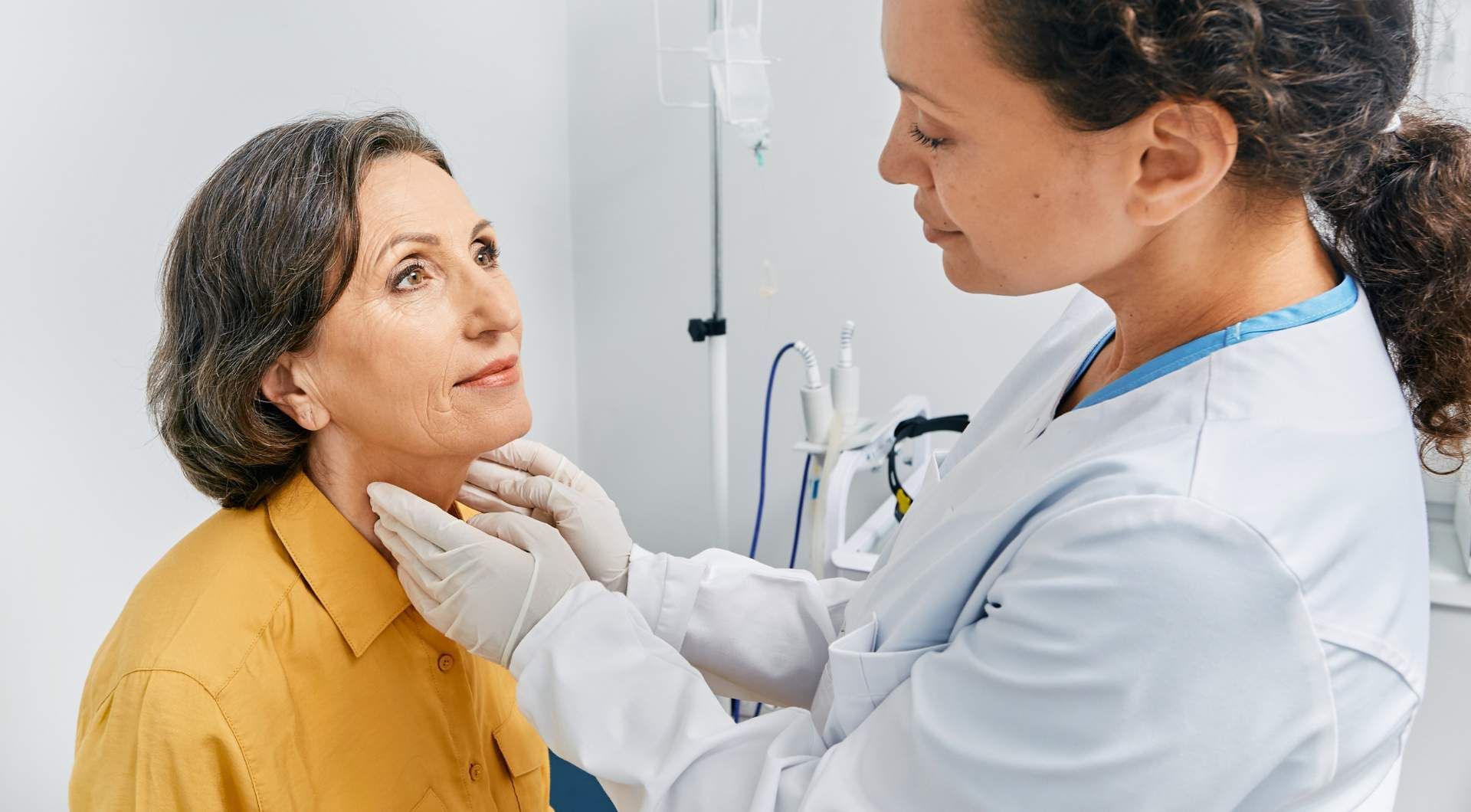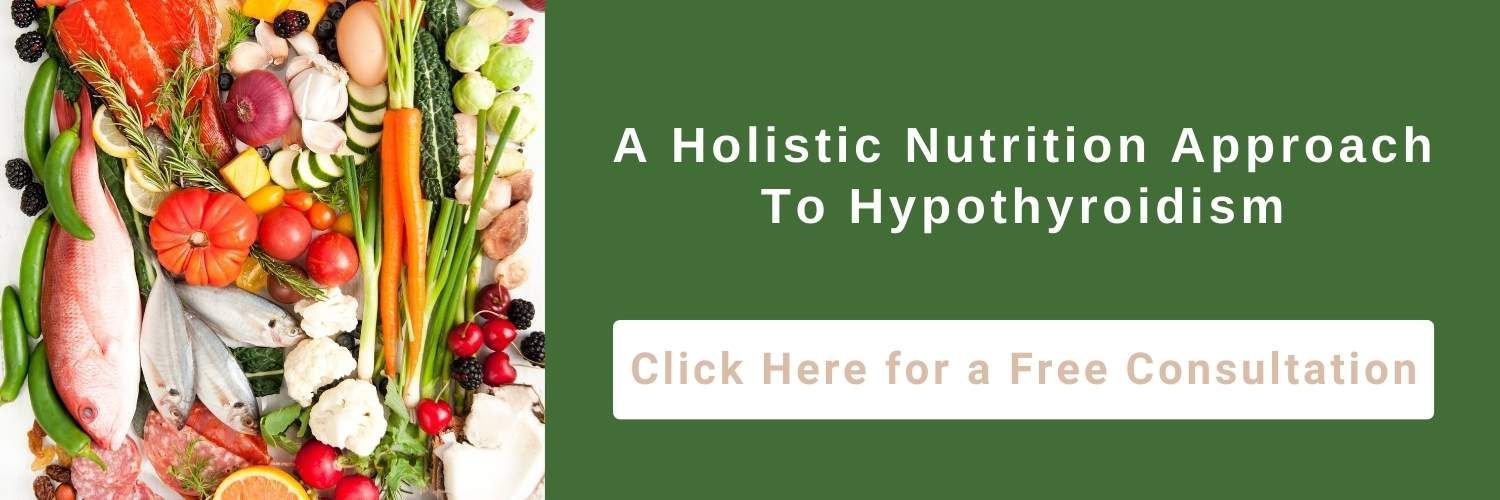The Mysterious Thyroid: Unraveling the Intricacies of Hypothyroidism in Females
"The content below is not intended to be a substitute for professional medical advice, diagnosis, or treatment. Always seek the advice of your physician or other qualified health provider with any questions you may have regarding a medical condition."
The thyroid can seem like a mystery. It’s so small but serves such a crucial function.
Trying to navigate life with a multifaceted condition like hypothyroidism can be confusing and discouraging.
However, once you crack the code and discover the factors that contribute to hypothyroidism, you can learn to live peaceably in your mind and responsibly in your body.
Read on to learn about the possible causes of low thyroid hormone and how HealthierU can help you gain insights for a proactive, holistic approach to your well-being.
Table of Contents
What Causes Hypothyroidism in Females?
There are many possible causes of hypothyroidism in females. Sometimes multiple issues may be at work simultaneously. The most common include:
- Thyroiditis
- Iodine deficiency
- Hereditary conditions
- Pregnancy
- Aging
- Congenital factors
- Thyroid surgery
- Certain medications
- Radioactive iodine treatment
- Sedentary lifestyle
11 Factors That May Contribute to Hypothyroidism in Females
#1: Thyroiditis
Inflammation of the thyroid is called thyroiditis.
It causes thyroid hormone to leak out of the thyroid, leading to high levels of thyroid hormone in the blood. For some, the thyroid may become permanently underactive, while for others it may return to normal function.
Thyroiditis may have several causes, including:
- Hashimoto’s disease (Hashimoto’s thyroiditis), an autoimmune disease that is generally undetectable and painless
- Subacute thyroiditis, in which the thyroid is enlarged and painful, and believed to be caused by a virus
- Certain medications
- Radiation
- Pregnancy
- Riedel thyroiditis, or fibrosis of the thyroid tissue
#2: Iodine Deficiency
Iodine is a mineral your thyroid uses to make thyroid hormones.
If you have an iodine deficiency, your thyroid cannot make enough thyroid hormone to adequately perform its normal roles in the body. The thyroid may grow larger in an attempt to compensate for the lack of iodine.
Women who are pregnant or breastfeeding are at greater risk of being iodine-deficient because of their enhanced nutritional needs. Supplementation is critical during these times since iodine deficiency can harm both the growing baby and the mother’s thyroid.
Iodine deficiency is rarely a problem in the United States since the widespread use of iodized foods supplies the iodine needed for adequate hormone production.
For those lacking in iodine, supplementation through foods or vitamins may
reverse hypothyroidism caused by iodine deficiency.
#3: Hashimoto’s Disease
Hashimoto’s disease is an autoimmune condition that attacks the thyroid and is the most common cause of hypothyroidism. When the thyroid becomes inflamed by the immune system’s attack, it cannot produce adequate thyroid hormone.
People with Hashimoto’s often have a family history of the disease. Women are more likely than men to be affected, making it the leading cause of hypothyroidism in females.
In some cases, Hashimoto’s disease develops after giving birth. This postpartum condition often resolves after a year or two but can increase your chances of developing Hashimoto’s permanently.
Hashimoto’s can cause irregularity in menstruation, which can lead to difficulty getting pregnant and problems during pregnancy. Treatment with the drug levothyroxine may bring regularity to menstruation and improve birth outcomes.
A person with Hashimoto’s might have no symptoms for years because of the slow progression of the disease. You can be diagnosed with Hashimoto’s even without symptoms if you have elevated thyroid antibodies or thyroid-stimulating hormone levels or an ultrasound reveals an enlarged thyroid gland.
If thyroid hormone levels become low,
levothyroxine is usually part of the standard treatment plan. While this treatment may be life-long for many patients, evidence suggests that people with hypothyroidism may not need to take levothyroxine
indefinitely.
#4: Hereditary Conditions
Because of the complex nature of inheritance and gene expression, it is difficult to determine the extent of heredity in the development of hypothyroidism.
We know that genetics may play a role in hypothyroidism in a few ways:
- 65% of circulating thyroid hormone is genetically determined.
- Various gene defects have been associated with congenital hypothyroidism. In most cases, the thyroid gland is absent, reduced in size, or located in an abnormal position. Some syndromic diseases caused by gene defects that may have hypothyroidism as a symptom include:
- Pendred syndrome: A disorder associated with hearing loss and goiter
- Bamorth-Lazarus syndrome: A very rare condition that also presents with cleft palate and spiky hair
- Brain-lung-thyroid syndrome: A condition affecting all, two, or only one of these organs
- 20-30% of hypothyroidism patients developed the condition as a result of Hashimoto’s disease, which is believed to be inheritable to some degree.
#5: Pregnancy
Hypothyroidism is the second most common endocrine disorder affecting pregnant women. Those with a personal or family history of thyroid disorder or type 1 diabetes are at higher risk and should have their thyroid hormone levels screened during pregnancy.
Hormonal changes and changes in the thyroid itself during pregnancy can bring about hypothyroidism or worsen its effects. High levels of human chorionic gonadotropin (hCG) are often associated with morning sickness and can decrease thyroid stimulating hormone (TSH) in the first trimester. Estrogen increases the number of thyroid hormone-binding proteins, meaning overall thyroid hormone levels are higher.
The thyroid may increase in size during pregnancy, but this is rare if the mother has sufficient iodine intake. Normally, these changes have no persistent effects, but they may trigger the beginning of hypothyroidism in the mother. This can have devastating effects on the developing baby since thyroid hormone is critical for fetal growth and brain development.
Sometimes hypothyroidism results from
Sheehan syndrome, which can develop after severe bleeding during pregnancy or childbirth. This condition destroys the pituitary gland, which regulates the thyroid.
#6: Aging
Hypothyroidism can develop at any time, but most commonly affects women over age 60. This is because the organ’s function naturally declines with age.
Hypothyroidism that develops at this stage in life may not present as severely as it would at a younger age. This could be due to changing hormone needs or the fact that many symptoms of hypothyroidism — such as fatigue and insensitivity to cold — are similar to the normal experience of aging.
HealthierU can serve as your guide to distinguishing between these kinds of symptoms so you can understand the changes in your body and take optimal measures to ensure your continued well-being.
#7: Congenital Factors
Most newborns in the United States are tested for hypothyroidism to screen for those who may be born with an underdeveloped or improperly functioning thyroid. Prompt treatment with levothyroxine can prevent intellectual disability and growth failure while delays in treatment may cause irreversible damage.
Most cases of congenital hypothyroidism are caused by abnormal development of the thyroid that is generally not hereditary.
Sometimes, however, the condition is a result of:
- The passage through the placenta of the mother’s antithyroid medication or thyroid-blocking antibodies
- An iodine deficiency or exposure to excess iodine, both of which hinder thyroid hormone synthesis
- An abnormality of the pituitary gland or the hypothalamus (secondary or tertiary hypothyroidism)
Newborns may be asymptomatic at birth, but the following symptoms can appear in the first few weeks:
- Lethargy
- Difficulty feeding
- Hoarse or weak cry
- Jaundice
- Hypothermia
After six weeks other symptoms may present, including:
- Slow heart rate, low blood pressure, and anemia
- Enlarged tongue
- Puffy eyelids
- Umbilical hernia
- Distended abdomen
At least two screenings for congenital hypothyroidism should be performed before a baby is discharged from the hospital.
#8: Thyroid Surgery
Thyroid surgery may be necessary for the following reasons:
- To remove small thyroid cancers
- To noncancerous nodules
- To treat hyperthyroidism or goiter
Sometimes after surgical removal of part of the thyroid, the remaining part can still yield normal amounts of thyroid hormone. In
30-50% of cases, however, the patient can develop hypothyroidism. If the entire gland is removed, hypothyroidism is inevitable.
#9: Certain Medications
Some medicines used to treat heart conditions, bipolar disorder, or cancer can cause damage to the thyroid or otherwise interfere with thyroid hormone production. These include:
- Amiodarone, taken to correct arrhythmias, can inhibit the synthesis of thyroid hormone because metabolizing this medicine releases large amounts of iodide.
- Lithium, a mood-stabilizing medicine, inhibits the uptake of iodine by the thyroid and the secretion of thyroid hormone.
- Radiation performed to target cancer in the neck region and many chemotherapy medicines in high doses directly affect the thyroid.
- Medications for hyperthyroidism, such as propylthiouracil and methimazole, have hypothyroidism as a side effect.
If you take any of these medicines, your doctor should periodically check your thyroid hormone levels to ascertain whether you need supplemental synthetic thyroid hormone (levothyroxine) to resupply the deficiency.
#10: Radioactive Iodine Treatment
Radioactive iodine treatment is performed when hyperthyroidism doesn’t respond to antithyroid drug therapy or in the case of thyroid cancer or goiter. This treatment destroys thyroid tissue, leaving the patient with normal or low thyroid function.
Hypothyroidism usually develops in up to
80% of patients who have received radioactive iodine treatment, often in the first year after treatment. If it does not appear within that time, vigilance is still important, because it can show up at any time.
#11: Sedentary Lifestyle
Health experts note that thyroid issues are becoming more common, to some degree because of the sedentary lifestyle of a mechanized society.
A sedentary lifestyle can lead to lower levels of thyroid hormone, which is a critical component in the regulation of heart rate and energy metabolism.
One potentially controllable factor in the development of hypothyroidism is our exercise level, and evidence shows that regular exercise can improve thyroid health.
The fatigue associated with hypothyroidism is difficult to overcome to make exercise a priority. But hormone replacement therapy can bring your energy levels closer to normal, so exercise can become a part of your regimen. When hypothyroid patients exercise regularly, they can enhance the function of their thyroid, increasing T4 levels.
Exercising can also help counteract some of the symptoms of hypothyroidism, such as depression and weight gain.
HealthierU: Offering a Holistic Nutrition Approach to Addressing Hypothyroidism in Females
As you explore the causes of hypothyroidism in females, you might be wondering how to move forward with this knowledge.
HealthierU helps patients with hypothyroidism through a holistic nutrition approach that leaves them feeling empowered and encouraged. A free consultation with our holistic nutritionist, Dr. Donna Sergi, is the first step.
Following a thorough examination, Dr. Sergi provides expert guidance about the best lifestyle and nutrition choices for your unique health circumstances.
Schedule your free consultation today at HealthierU.
HealthierU is dedicated to addressing hypothyroidism in a way that respects the holistic nature and multifactorial process of the condition. We can help you determine the precise cause of the symptoms you are experiencing.
When you understand the underlying cause, you can begin a regimen to counter the progression of hypothyroidism. HealthierU will guide you in developing lifestyle habits and nutrition plans that can improve your symptoms and overall well-being.
There is more to your story than just the numbers. We treat the whole person, without dispensing with the numbers. Contact us today for a free consultation.






